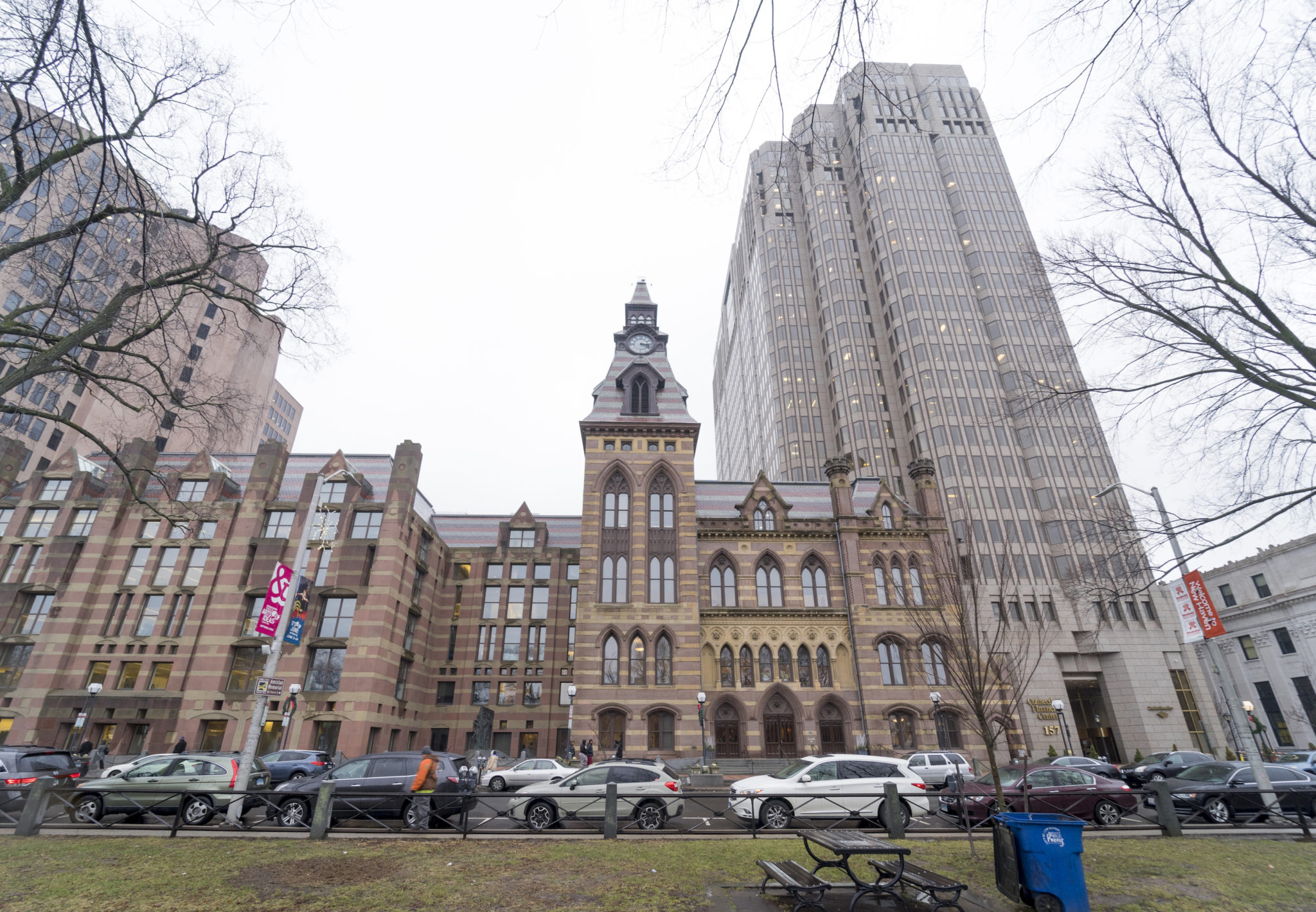
Nat Kerman
As November’s mayoral race approaches, questions about New Haven’s tight budget and Yale’s contribution to the city’s finances continue to loom over members of the Elm City and University communities.
Both mayoral candidates — Democratic nominee Justin Elicker SOM ’10 FES ’10 and incumbent Toni Harp — have voiced concerns about New Haven’s inability to impose taxes on Yale’s properties and demanded that the University increase its financial contributions. Recent revelations from the city’s Grand List — a record of all taxable property in New Haven — detail the impact Yale’s property purchases may have on the Elm City’s budget.
In the 2017-18 fiscal year, the City of New Haven removed six Yale buildings from its Grand List, after the University reappropriated those properties for full or partial academic use and made them tax-exempt. This change in building status resulted in a $3-million loss in taxes collected by the city last year, as the total assessed taxable value decreased from $83 million in 2017 to $15 million in 2018.
Yale also increased its voluntary payment to $2.5 million, with an immediate positive impact starting in FY19.
Five of the six properties are owned by limited liability corporations which are, in turn, owned by Yale itself, according to the city’s acting tax assessor Alexzander Pullen. Previously, the city believed that the properties were owned by an asset management firm called Winstanley Enterprises, LLC. Four of the six properties are located at Science Park, while the other two lie closer to the Yale School of Medicine. Yale uses the buildings for a multitude of offices and programs, including the Yale Health Plan, the Yale Press and the University’s employee parking plan.
“Upon contacting the office prior to the signing of the Grand List, we were informed that these properties were in fact owned by Yale, managed by Winstanley and were now being used for academic purposes,” Pullen told the News in an email. “While five of these properties are listed in names other than Yale, they have been verified by our corporation counsel as 100 percent owned by Yale.”
In 2017, the six properties — 50 Division Street, 344 Winchester Avenue, 2 Church Street, South, 276 Winchester Avenue, 135 College Street and 150 Munson Street — held a total assessed value of $83,671,700. From these properties, the City collected $3,596,209.67 in tax in 2017, according to documents obtained from Pullen. In 2018, the properties’ assessed taxable value decreased to $15,675,491 in total, due to their change in status as non-taxable educational properties. The tax collectected from these properties in 2018 decreased to $673,732.60.
Since its founding in 1982, the Science Park Development Corporation (SPDC) has worked to rehabilitate the former factory campus, provide employment to New Haveners and attract scientific research to the Elm City. The non-profit is a collaboration between Yale, the City of New Haven, the State of Connecticut and the Olin Corporation, according to SPDC’s website. The development has not always been smooth sailing, due to necessary cleanup following the factory’s closing, as well as struggles to attract tenants.
“Over time, as other private sector developments have occurred in New Haven and tenants have relocated, Yale has backfilled and acquired these properties to provide stability in the market,” wrote Cynthia Nethercut, director of special projects at the University Controller’s Office, in a letter to Pullen dated April 25, 2018.
In an email to the News, University spokeswoman Karen Peart said Yale was a major catalyst for and contributor to the redevelopment of Science Park, which once had contaminated and non-commercially viable buildings.
“The university’s efforts paved the way for many taxable projects to be developed and join the city’s tax rolls,” Peart added.
But as the city’s financial difficulties escalate, many New Haven residents have called on the University to increase its economic contributions.
“Private universities like Yale are tax-exempt because they are supposed to provide a valuable good to our society in the form of education and research, but Yale’s national and global mission means that the New Haven community is required to finance an institution whose benefits largely flow out of the city,” candidate for Ward 1 Alder Eli Sabin ’22 told the News. “Yale’s short-sighted decision to take six properties off of New Haven’s grand list could result in cuts to the city’s public schools, services for the homeless or after school programs and continues the university’s disrespectful attitude towards community residents.”
In total, Yale paid $5.6 million in taxes on its nonexempt property in 2018 and also contributed $11.5 million in voluntary payments to the City. In 2018, the University’s tax-exempt property was estimated at $3.37 billion.
Jose Davila IV | jose.davilaiv@yale.edu
Correction (10/21): After the publication of the article, Yale Associate Vice President of New Haven Affairs and University Properties Lauren Zucker told the News that the University increased its voluntary payment with an impact starting in FY19 . The News has updated the story to accurately reflect the complexity of the issue.







